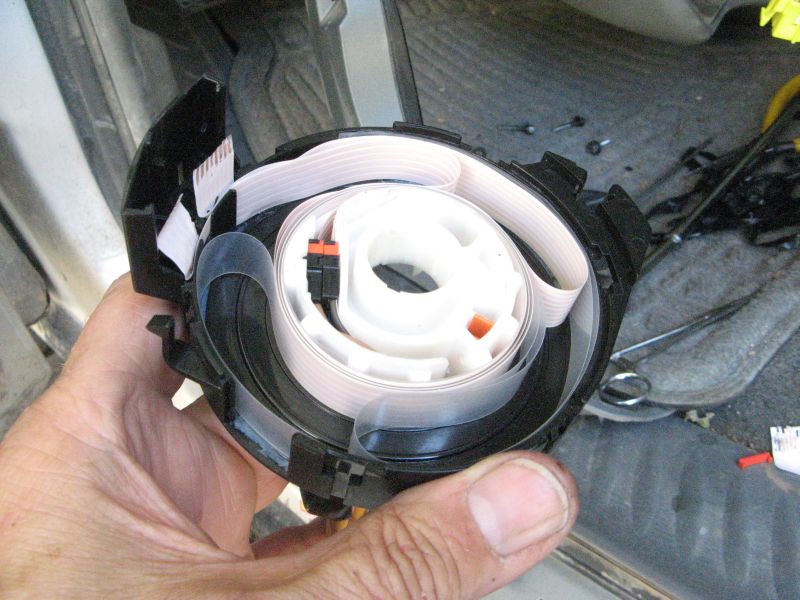The Clock Spring Conundrum: Ensuring The Steering Mechanism Secure and Sound
When it comes to vehicle safety, many drivers pay attention to components like brakes, tires, frequently ignoring an essential piece of technology that plays a critical role in steering: the clock spring. This often overlooked device is responsible for ensuring the connection between the electrical systems of your steering wheel and the rest of your vehicle. Without a properly working clock spring, you could face not just hassle, but also serious safety risks.
The clock spring facilitates vital features such as air bag functionality, steering wheel controls, and horn capabilities. With time, damage can lead to failures that jeopardize these features, leaving drivers at risk in essential situations. Being aware of the importance of changing your car's clock spring when necessary can help guarantee that your steering stays safe and sound, safeguarding you and your passengers on the road.
Understanding Time Coils
A clock spring is a crucial component found in the steering column of many automobiles. It serves as a movable connector that preserves the electrical link between the wheel and the car's electrical systems while allowing for the movement of the wheel. This creative design enables the functioning of various functions, including the safety bag, horn, and controls on the steering wheel. Without a properly functioning clock spring, operators may face issues with these important safety and convenience features.
Over time, clock springs can deteriorate due to repeated use and interaction with environmental factors. When this takes place, drivers may notice symptoms such as the safety bag alert lighting up on the instrument panel, or the wheel controls becoming unresponsive. In some situations, a defective spiral spring can even lead to malfunctioning airbags, which poses serious safety risks in the event of a crash. Therefore, identifying the symptoms of a deteriorating spiral spring is crucial for ensuring car safety.
Replacing a broken clock spring is important for ensuring proper operation of your vehicle's steering systems. Regular evaluations can help detect possible issues before they escalate into major problems. If you notice any irregularities with your controls on the steering wheel or inflatable bag system, it is important to have a certified technician inspect your spiral spring. Timely change not only boosts driving safety but also supports the overall lifespan and performance of your car.
Typical Concerns with Clock Springs
Clock springs can experience a range of problems that affect their functionality and security. One frequent issue happens from wear and tear as a result of consistent use. As time goes on, the sensitive coils inside the clock spring can get worn or damaged, resulting in a loss of connection between the steering system and the vehicle's electrical components. This may manifest as erratic behavior in the controls, including unresponsive buttons or failure of essential features including airbag deployment.
Another issue with clock springs is moisture damage. Many vehicles have a clock spring located in areas susceptible to exposure to. When moisture infiltrates into the spring assembly unit, it can result in corrosion of the components. This damage can break electrical circuitry, resulting in malfunction of crucial systems and potentially resulting in drivers lacking essential safety features.
In conclusion, a poorly installed clock spring can be a serious issue. If it is improperly placed appropriately during replacement or replacement, it can become misaligned. Misalignment can result in binding or stretching of the spring, which may cause steering difficulties while also endangering untimely failure. Ensuring a proper installation is crucial to preserving the integrity of the clock spring and, as a result, the complete safety of the steering mechanism.
Upkeeping Your Steering Mechanism
To guarantee your steering system continues to be trustworthy, routine maintenance is crucial. One critical aspect of this maintenance entails the timely substitution of the spiral spring. This part is crucial for keeping electrical connections between the wheel and the vehicle's built-in systems. When it begins to deteriorate, it can cause a disruption of critical features such as airbag functionality, which can have grave safety implications.
In addition to spiral spring replacement, it's important to routinely check other elements of your steering system. Checking the column for any signs of damage or ensuring that all links and bolts are secure can aid prevent greater issues down the road. Consistently taking your recommended repair shop for a thorough inspection can detect problems in advance and rescue you from high repairs.

Lastly, always be conscious of changes in your steering capability. If you observe unusual sounds or if the steering feels off, do not ignore these indicators. Resolving nissan navara d40 clock spring replacement can contribute to ensuring the functionality of your spiral spring and overall steering system, guaranteeing a steady and safe driving experience.